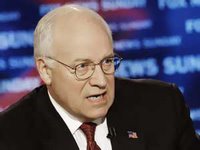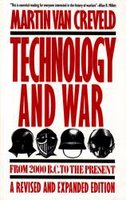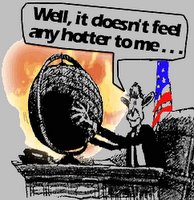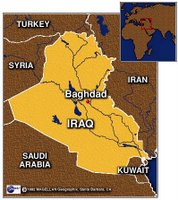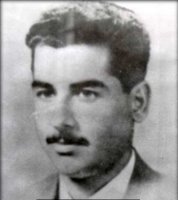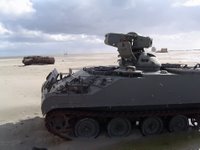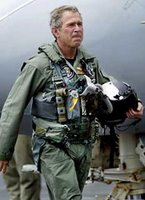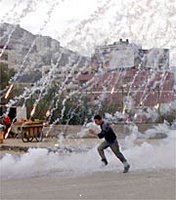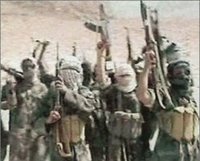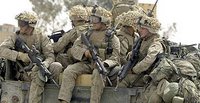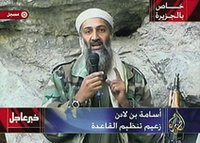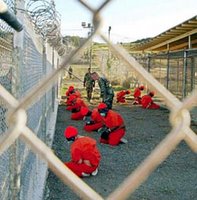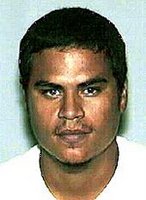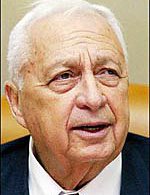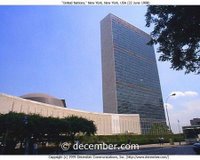 John Bolton, the abrasive U.S. ambassador to the United Nations who has been dubbed by one New York newspaper as "a human wrecking ball", is living up to every critic's gloomy expectations.Last week, he threatened U.N. member states, specifically the 132 developing nations, that if they don't play ball with the United States, Washington may look elsewhere to settle international problems
John Bolton, the abrasive U.S. ambassador to the United Nations who has been dubbed by one New York newspaper as "a human wrecking ball", is living up to every critic's gloomy expectations.Last week, he threatened U.N. member states, specifically the 132 developing nations, that if they don't play ball with the United States, Washington may look elsewhere to settle international problems.
"It is obvious," Jim Paul of the New York-based Global Policy Forum told IPS,
"that Washington has once again threatened the United Nations with its usual warning: 'Do what we say, or we will send you into oblivion"'. He said Bolton's message is clear,
"If you don't, we will wreck you."
Addressing a gathering at Wingate University in North Carolina last week, Bolton said:
"Being practical, Americans say that either we need to fix the institution (the United Nations), or we'll turn to some other mechanism to solve international problems."Asked for his comments, U.N. Secretary-General Kofi Annan refused to be drawn into the debate.
"I am not the interpreter of Ambassador Bolton," he bluntly told reporters early this week.
Told that it was a
"serious statement" requiring a serious response from Annan, U.N. spokesman Stephane Dujarric would only say:
"Again, I think the secretary-general's words were that he wasn't going to interpret what Mr. Bolton said, and if he's not, I don't think I would risk it too."
"But we are working with the United States, its Permanent Mission and with Ambassador Bolton very closely, as we are with all the other member states, on the issues of reform that are being discussed right now," Dujarric added.
But Phyllis Bennis, a senior fellow at the Washington-based Institute for Policy Studies, had a more critical take on Bolton's controversial statement.
"Bolton himself, who said in a debate with me in 1994 that 'there is no United Nations', has now surpassed his own quote, claiming he is enjoying his job as ambassador to the United Nations because it is 'a target-rich environment'," Bennis told IPS.
She said that since the "failed U.N. summit" last September, the administration of U.S. President George W. Bush has used the demand for "management reform" as a means of achieving its political ends.These include disempowering the General Assembly and assuring that future holders of the secretary-general's position will be unequivocally accountable to Washington's unilateralist agenda: an instrumentalist view in which the United Nations provides multilateral cover for unilateral and illegal U.S. interventions and wars, said Bennis, author of several publications on the United Nations and international politics.
She also pointed out that U.S. domination of the world body is hardly a new story. It was back in 1995, during the self-declared "assertive multilateralism" of the presidency of Bill Clinton that then-U.N. ambassador Madeleine Albright famously said "the U.N. is a tool of American foreign policy.""But the Bush team, led by John Bolton, has taken that long-standing domination to an entirely new level," said Bennis, author of "Challenging Empire: How People, Governments and the United Nations Defy U.S. Power".
The 132 developing countries of the Group of 77 (G77) say that U.N. reforms are primarily driven by the Bush administration and backed by right wing neo-conservatives
who have made U.N.-bashing into a fine art.
The G77 has told Annan that it is strongly opposed to the neo-conservative view that the world body should be run like a U.S. corporation, with the secretary-general playing the role of a chief executive officer (CEO).
Paul of the Global Policy Forum says the Bush administration wants Annan just to be that: a glorified CEO.
"This is not compatible with democratic institutions like the United Nations. U.S. corporations are authoritarian, with no decision-making powers with employees," Paul added.
He also pointed out that the Bush administration sees Annan as being
"a vector of influence, and pliant to U.S. interests than the U.N. General Assembly will ever be".Since Washington cannot control the General Assembly, it wants the top leadership in the U.N. Secretariat to be in its pockets, he added.
Concurring with Paul, Bennis said that many of the secretary-general's top staff have been replaced over the last two years or so with active supporters of the U.S. agenda for the United Nations.
"That effort includes the U.S.-orchestrated replacement of Kofi Annan's longstanding chief of staff Iqbal Riza with Mark Malloch-Brown (who called Bolton 'very effective'), and the appointment of Bush loyalist and right-wing American State Department official Christopher Burnham as undersecretary-general for management," she said.
But Bennis argued that
Annan himself has maintained some level of independence and has not completely collapsed under the coercion (he has not retracted his characterisation of the Iraq war as "illegal," for example) -- but the pressure is rising.
Bennis said that some of Annan's senior advisers have played
"a major role in reassuring Washington power-brokers, including Bolton's anti-U.N. backers, that the United Nations remains a pliant and malleable tool for U.S. policy efforts".
Paul said that developing nations should collectively remain united.
"If they cave in to U.S. threats now, they will only help open up new threats."
"The United Nations, which consists of 191 member states, cannot be run according to the dictates of a single country," he added.Source :
Here
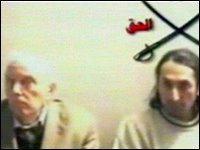 It seems as at the same time the suicide bombings in Iraq are getting less and less coverage the Insurgants have changed tactic , returning to the kidnap of westerners that will ensure their place on the worlds televisions
It seems as at the same time the suicide bombings in Iraq are getting less and less coverage the Insurgants have changed tactic , returning to the kidnap of westerners that will ensure their place on the worlds televisions
